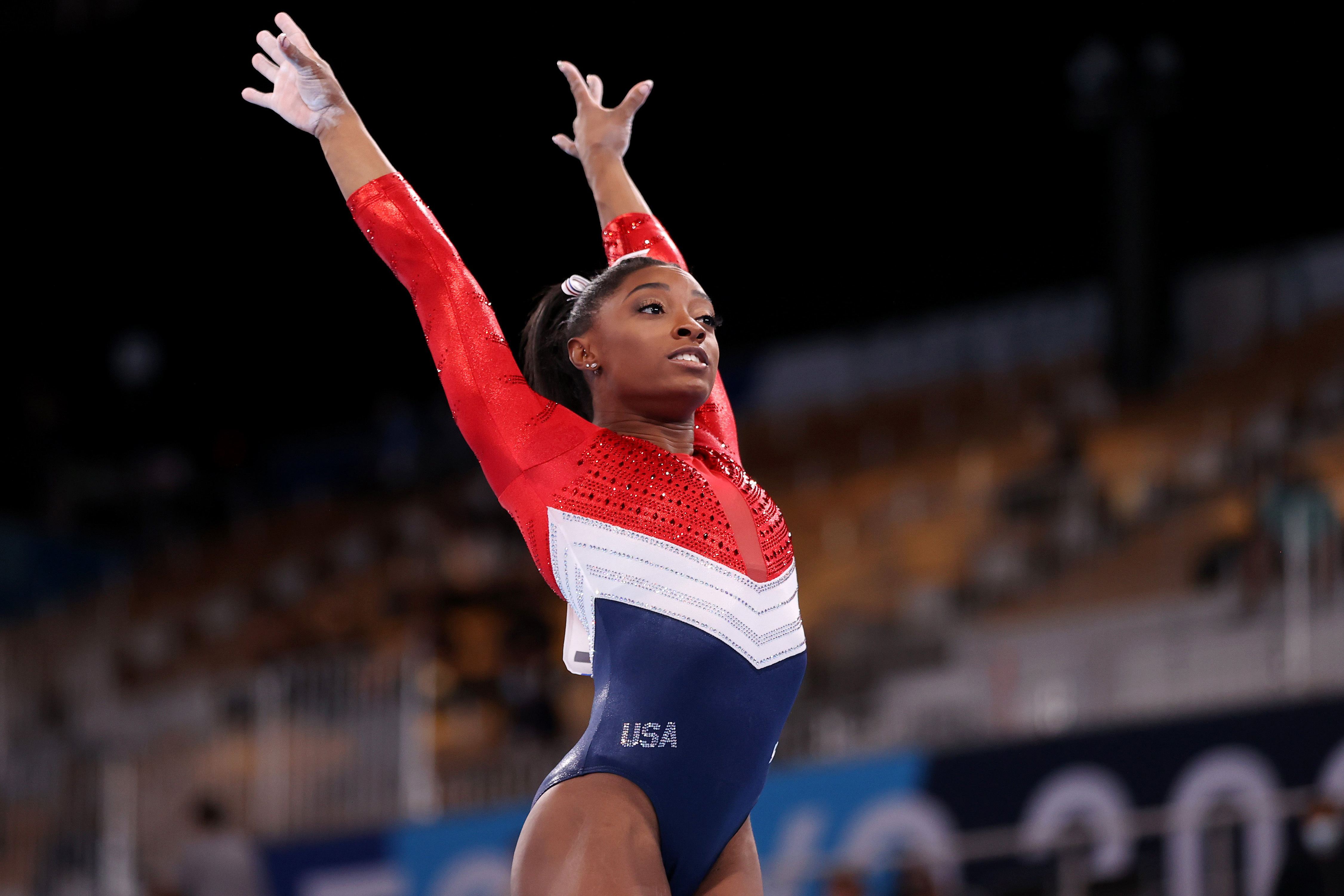When Simone Biles performed a triple-double (two flips with three twists in the floor exercise), at the World Championships the gymnastic world stopped for a second. There she was breaking her own records again.
If you are gymnastic-illiterate (like me) and don’t know what a triple-double represents, just know that she made history by becoming the first woman to ever accomplish it. Biles is the most decorated American gymnast of all time.
After Biles only scored 13.7766 during the Vault team finals in the 2020 Tokyo Olympic games, she pulled out of the rest of the team and the individual all-around competitions saying she needed to focus on her mental health. She said she did not “trust herself as much as [she] used to.”
Biles said she had the twisties an occurrence where a gymnast loses track of where they are in the air. Biles had lost her “air sense,” one of her greatest skills as a gymnast. For many that sounded vague, and like she was just nervous. Because she is the best in what she does, people expect her to push through those “excuses”.
Simone Biles is my age. But age is not the only thing we have in common. We are both women in sport. And she represents thousands of other women like me. I am a huge fan of high-level athletes in any sport, especially those that put in the work, get to practice before anyone else, and be the last one to leave. I know how hard it is to be focused 100% of the time, to be motivated to always get better without letting anything else interfere with your performance.
The precision of every movement, the stress of attempting perfection can take away the joy of the sport you once loved. The fulfillment that only comes with a victory, and the disappointment of a loss are so extreme and still so close to each other. Kevin Durant’s foot was off by an inch in Game 7 of the NBA’s Eastern Conference semifinals. His shot was worth two points instead of three, and the Brooklyn Nets lost. One slight second, one small detail, one small movement, and the result is compromised.
And what is more precise than gymnastics? It has to be exhausting trying to be perfect all the time and having to smile while in pain because of the insanity of having athletes as entertainers.
The burden that comes with that infinite search for perfection and having your body as an instrument of work, is something that we, as fans, do not always take into consideration. We forget that athletes also have a family, a life outside training rooms, and a million things that might interfere with their mental health. While athletes might have strong muscles, they are not made of steel.
When Simone Biles—someone whom the world knew would win a medal—”gives up” from such an important competition, it raises awareness of how serious the mental health of high-level athletes is.
After the Biles episode, Dominique Moceanu, an Olympics child prodigy in 1996, said “[she] was not allowed to say [she] was in pain until [she] collapsed”. She was a gold medalist, but she told BBC she was not given the choice of saying no.
Athletes hear phrases like “train insane or remain the same,” or “keep pushing it”, all the time. While some might see those statements as motivation, do we truly want them to do that? Because the price can be actually going over the edge.
Simone Biles taught us that stopping at your limit is not a weakness and that mental health is just as important as any other physical injury. Biles came to break the outdated system that makes you suck up your pain and smile.
Biles told The Washington Post that “[her] mental and physical health is above all medals that [she] could ever win.” And she is right. How much is a gold medal truly worth? If I had to put a price tag on it, it would not cost anyone’s peace of mind.


















Be First to Comment